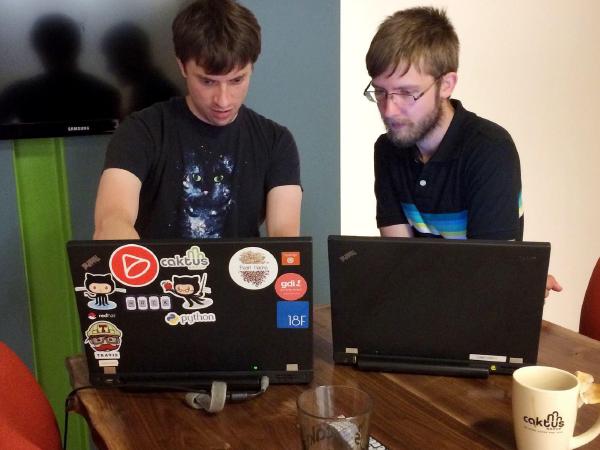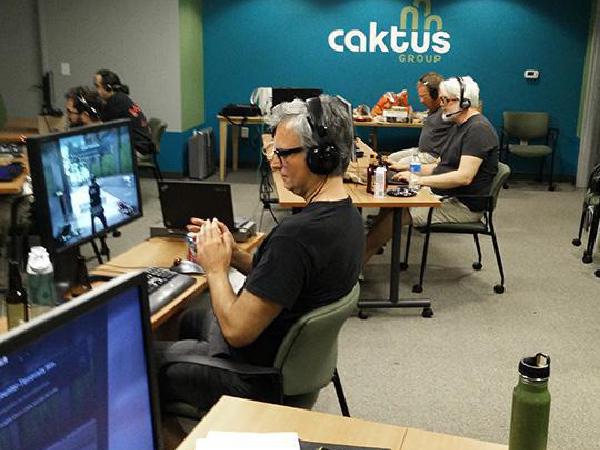Caktus Blog
2015

AWS load balancers with Django
We recently had occasion to reconfigure some of our existing servers to use Amazon Web Services Elastic Load Balancers in front of them. Setting this up isn’t hard, exactly, but there are a lot of moving parts that have to mesh correctly before things start to work, so I thought I’d write down what we did.

Announcing the Caktus Open Source Fellowship
We are excited to announce the creation and funding of a pilot program for open source contributions here at Caktus Group. This program is inspired by the Django Software Foundation’s fellowship as well as the Two Day Manifesto. For this program, Caktus seeks to hire a part-time developer for twelve weeks this fall for the sole purpose of contributing back to open source projects. Caktus builds web applications based on open source tools and the continued growth of these projects is important to us. Open source projects such as Python and Django have given so much to this company and this is one of many ways we are trying to give back.

Announcing Django Girls RDU: Free Coding Workshop for Women
We’re incredibly excited to announce the launch of Django Girls RDU, a group in NC’s Triangle region that hosts free one-day Django coding workshops for women. Django Girls is part of an international movement that’s helped 1,600 (and counting!) women learn how to code.

Using Unsaved Related Models for Sample Data in Django 1.8
Note: In between the time I originally wrote this post and it
getting published, a
ticket and pull
request were opened in
Django to remove allow_unsaved_instance_assignment and move validation
to the model save() method, which makes much more sense anyways. It's
likely this will even be backported to Django 1.8.4. So, if you're
using a version of Django that doesn't require this, hopefully you'll
never stumble across this post in the first place! If this is still an
issue for you, here's the original post:

PyCon 2015 Workshop Video: Building SMS Applications with Django
As proud sponsors of PyCon, we hosted a one and a half hour free workshop. We see the workshops as a wonderful opportunity to share some practical, hands-on experience in our area of expertise: building applications in Django. In addition, it’s a way to give back to the open source community.

Reviews of two recent Django Books
Introduction
When I started building sites in Django, I learned the basics from the excellent Django tutorial. But I had to learn by trial and error which approaches to using Django’s building blocks worked well and which approaches tended to cause problems later on. I looked for more intermediate-level documentation, but beyond James Bennett’s Practical Django Projects and our Karen Tracey’s Django 1.1 Testing and Debugging, there wasn’t much to be found.

Q3 2015 ShipIt Day ReCap
Last Friday marked another ShipIt Day at Caktus, a chance for our employees to set aside client work for experimentation and personal development. It’s always a wonderful chance for our developers to test new boundaries, learn new skills and sometimes even build something entirely new in a single day.

LAN Party at Caktus
This past weekend, our wonderful Technology Support Specialist Scott Morningstar hosted a Local Area Network (LAN) party at Caktus HQ. Held twice a year since 2008, the event allows geeks, gamers, and retro technology lovers to relive the nostalgia of multiplayer gaming in the early days of dial-up internet. In other words, everyone brings their own computer, and uses the LAN to play online games in the company of others. These parties are a lot of fun and add a more personal social element to the online gaming community.
Lightning Talk Lunch: Two Useful Organizational Tools
Monthly, we organize short Lightning Talks that take place during the lunch hour here at Caktus. Not only does this allow us a wonderful excuse to have lunch delivered from one of our many local foodie options, but it’s an excellent chance to expand our knowledge on a variety of topics. Past talks have included everything from an introduction to synthesizers and other forms of electronic music, to bug fixing, to the design inspiration behind our PyCon 2015 site.

Announcing Caktus Scholarships for Astro Code School
We’re very pleased to announce that Caktus Group will be sponsoring up to $20,000 worth of scholarships for Astro Code School students per year. There will be twenty $1,000 scholarships. We hope that these scholarships help increase access to code schools and the wider tech industry: